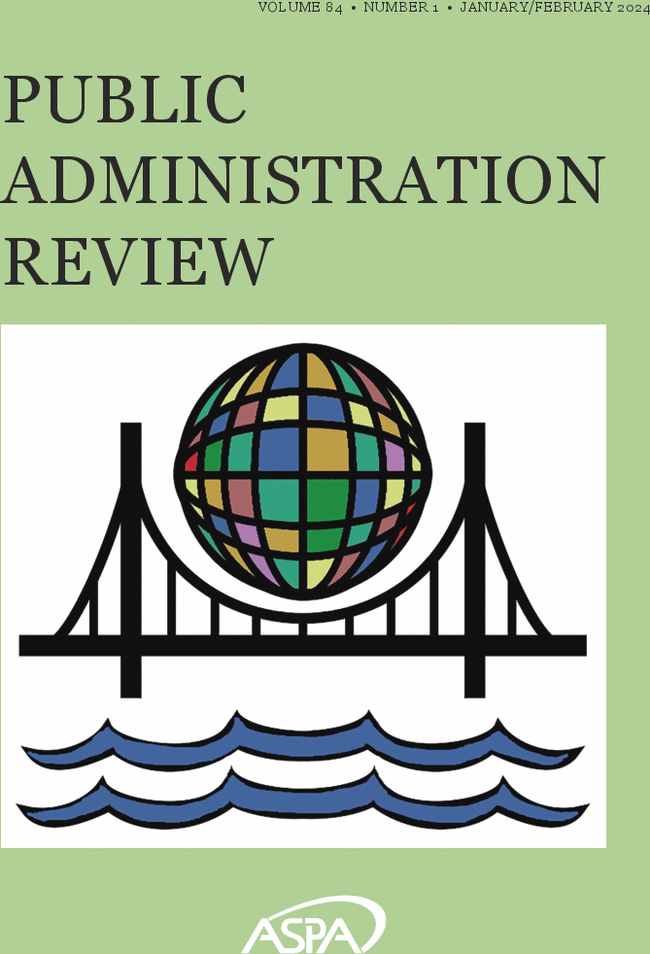评估美国州政府对证据的使用:联合分析
IF 6.1
1区 管理学
Q1 PUBLIC ADMINISTRATION
引用次数: 0
摘要
循证实践(EBP)已成为一场全球性的公共管理运动,旨在通过政府决策改善选民的生活。然而,公务员的决策如何受到科学证据的影响仍是一个未解之谜。在本研究中,我们将回答两个相关的研究问题:(1) 不同的证据要素如何影响公务员的项目偏好?(2)证据评级如何影响公务员的计划偏好?我们与推广使用 EBPs 的主要政府机构和非营利机构合作,邀请来自美国三个州政府的公务员参加配对联合实验。我们的分析表明公务员们更青睐有以下证据的项目:(1)来自他们自己的州;(2)较新;(3)对不同人口群体的人有积极影响;(4)由独立的政府团队和大学研究团队创建。我们还发现,"基于证据 "的评级促使公务员倾向于选择内部有效性更高的证据。本文章由计算机程序翻译,如有差异,请以英文原文为准。
Evaluating use of evidence in U.S. state governments: A conjoint analysis
Evidence-based practice (EBP) has become a global public management movement to improve constituents' lives through government decision making. However, how civil servants' decisions are influenced by scientific evidence remains unanswered. In this study, we answer two related research questions: (1) How do different elements of evidence impact civil servants' program preferences? (2) How does the rating of evidence influence their program preferences? Collaborating with major governmental and nonprofit agencies that promote the use of EBPs, we invited civil servants from three U.S. state governments to a paired conjoint experiment. Our analysis shows that: Civil servants prefer programs with evidence that is: (1) from their own states; (2) more recent; (3) shows positive effect on people from different demographic groups; and is (4) created by independent government teams and university research teams. We also find the “evidence-based” rating drives civil servants' preferences toward evidence with higher internal validity.
求助全文
通过发布文献求助,成功后即可免费获取论文全文。
去求助
来源期刊

Public Administration Review
PUBLIC ADMINISTRATION-
CiteScore
15.10
自引率
10.80%
发文量
130
期刊介绍:
Public Administration Review (PAR), a bi-monthly professional journal, has held its position as the premier outlet for public administration research, theory, and practice for 75 years. Published for the American Society for Public Administration,TM/SM, it uniquely serves both academics and practitioners in the public sector. PAR features articles that identify and analyze current trends, offer a factual basis for decision-making, stimulate discussion, and present leading literature in an easily accessible format. Covering a diverse range of topics and featuring expert book reviews, PAR is both exciting to read and an indispensable resource in the field.
 求助内容:
求助内容: 应助结果提醒方式:
应助结果提醒方式:


